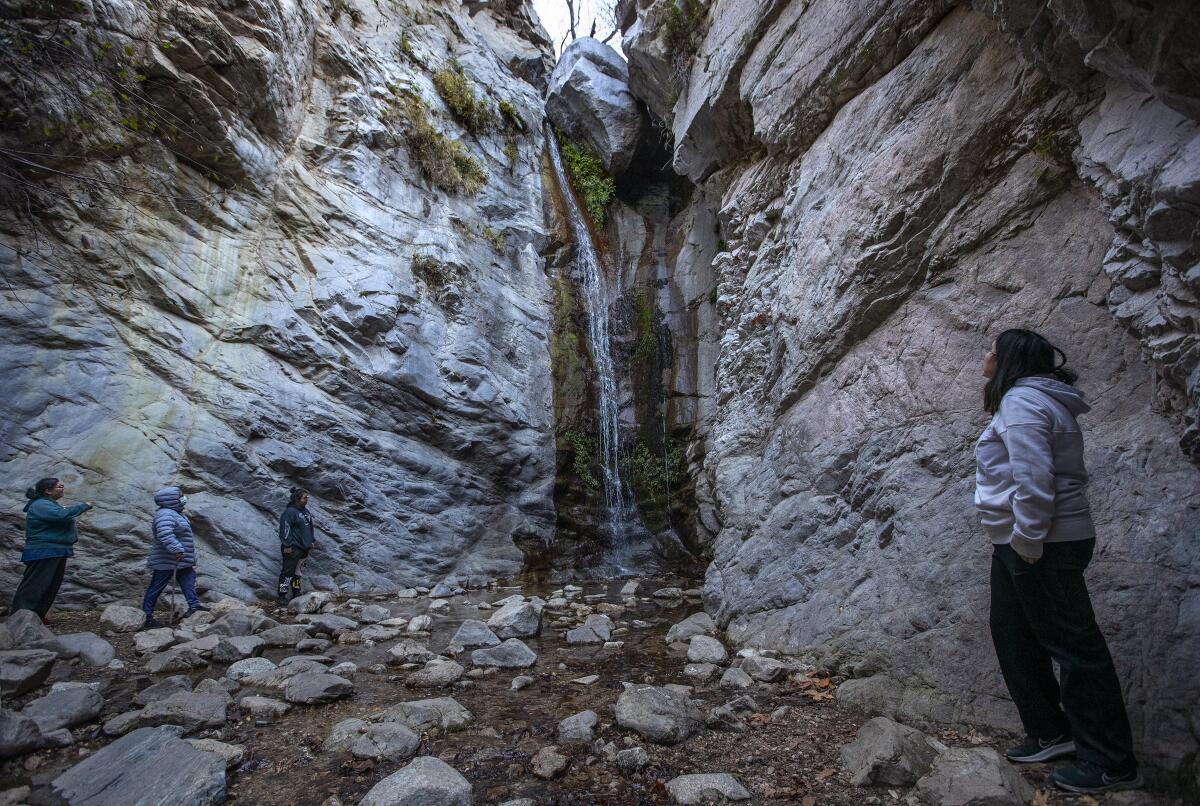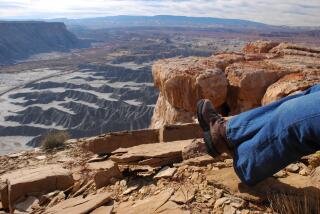Editorial: Biden expanded two national monuments in California. Three more to go

President Biden’s move Thursday to expand two national monuments in California is unquestionably good news for our climate and environment.
One proclamation will increase the size of San Gabriel Mountains National Monument by nearly one third, adding more than 105,000 acres of mountains and foothills above communities from Sylmar to Monrovia that were left out when President Obama first designated the area in 2014. The other will add 13,696 acres to Berryessa Snow Mountain National Monument in Northern California to protect Molok Luyuk, or Condor Ridge.
But Biden shouldn’t stop there. His administration should build on these conservation efforts and extend monument status to three other ecologically rich California landscapes with deep significance to Indigenous tribes.
A proposal in the California Legislature would put a “green amendment” on the November ballot to add the rights to clean air, clean water and a healthy environment to the state constitution. The people should have their say.
The most significant proposal would create Chuckwalla National Monument on more than 600,000 acres of federal land near Joshua Tree National Park stretching from the Coachella Valley to the Colorado River. Another would establish the 200,000-acre Sáttítla Medicine Lake Highlands National Monument near Mt. Shasta. The third would designate Kw’tsán National Monument on 390,000 acres in Imperial County along the border with Mexico and Arizona.
Protecting those lands would put California closer to its goal of conserving at least 30% of land and coastal waters by 2030. With Thursday’s proclamations adding 120,000 acres, California now has about 24.5% of its land conserved under its “30x30” initiative, according to the state. But there’s still 5 million more acres to go. And it’s hard to see a realistic path to achieving that without increasing protections on large swaths of federal land.
California’s rising power rates are an obstacle to climate action. Regulators need to modernize the way utilities bill their customers to encourage electrification.
“We believe the time is now,” said California Natural Resources Secretary Wade Crowfoot, who attended the White House ceremony Thursday where Biden signed the national monument expansions alongside tribal leaders, conservation groups and elected officials.
With nearly half of California’s land owned by the federal government, “there’s no way we’re going to hit 30x30 without enhanced conservation measures, enhanced protections on federal lands,” Crowfoot said in an interview.
Biden has now invoked the Antiquities Act 10 times during his presidency to designate and expand national monuments. The 1906 law has been used hundreds of times by presidents of both parties to establish or expand protections in places as breathtaking and beloved as the Grand Canyon, Death Valley and Joshua Tree.
Giving more power to the public to sue over illegal use of these toxins could help stop the collateral death among wildlife from anticoagulant rodenticide.
This authority conferred by the act allows him to bypass Congress, and the Republican-controlled House that is unlikely to advance legislation to protect these areas. With the November election on the horizon, it would be prudent for Biden to act on the three remaining California proposals within the next few months and cement his legacy by conserving more land during his first term than any other president since Jimmy Carter.
Boosting federal protection isn’t just the right thing to do; it’s in humanity’s self-interest to set aside wild open spaces that provide an outlet for public recreation, help keep the air and water clean, preserve rare species and provide a protective buffer as we experience the worsening effects of climate change and biodiversity loss. Doing so would set the state and nation on a more sustainable path and leave behind a conservation legacy that will yield benefits generations into the future.
More to Read
A cure for the common opinion
Get thought-provoking perspectives with our weekly newsletter.
You may occasionally receive promotional content from the Los Angeles Times.













